Editors at ThePrint love reading on policy, economics, politics, culture, and fantasy. Here are some books they read this year that stayed with them.
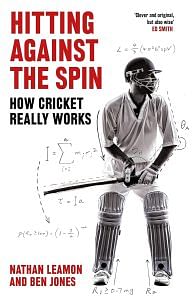
‘Hitting Against the Spin’ by Nathan Leamon & Ben Jones
This book sat by my bedside for a year as I was daunted by the complex math on its jacket. The World Cup broke my diffidence, and I discovered this brilliant book that makes cricket simpler with the most fascinating insights. Like, why do so few Indians bat left-handed? Off the bat, we’d blame Indian parents and their right-handed fixation. The authors tell us that more left-handers do better in SENA countries where pace dominates. They also mention a quaint cricket rule on LBW dismissals. Curious how that works? Read ‘Hitting Against the Spin’: Shekhar Gupta, Editor-in-Chief.
 ‘Strange Burdens: The Politics and Predicaments of Rahul Gandhi’ by Sugata Srinivasaraju
‘Strange Burdens: The Politics and Predicaments of Rahul Gandhi’ by Sugata Srinivasaraju
The book is an insightful commentary on Rahul Gandhi’s persona, his politics, and the factors that went into its evolution. Previous biographies of the Congress leader were largely formative assessments, as he was still a politician in the making. After two decades, though he is still experimenting with ideas, there is sufficient body of evidence that has enabled Srinivasaraju to bring a fresh, deep perspective on Rahul Gandhi’s ideological evolution — and his dilemmas in the Modi era: DK Singh, Political Editor.
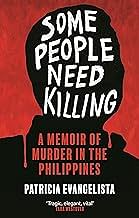 Some People Need Killing by Patricia Evangelista
Some People Need Killing by Patricia Evangelista
This book will provoke you out of your cerebral slumber, if you are in one. We read and heard about extrajudicial killings in the Philippines under former President Rodrigo Duterte, but detailed accounts in the book show how the trail of violence bloodied the society. The title comes from one of the author’s sources and a vigilante following Duterte’s doctrine on how people with drug links don’t just deserve killing but “need” it. Let that sink in: Nisheeth Upadhyay, Editor, Operations.
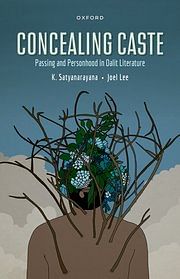 Concealing Caste by K Satyanarayana and Joel Lee
Concealing Caste by K Satyanarayana and Joel Lee
‘Passing’ is a very touchy subject in conversations and scholarship on American racism. Racial passing is often portrayed as a self-imposed exile that evokes fear, anger, guilt and betrayal. This book brings that lens to India’s caste system, featuring personal experiences of authors on how they were outed and forced to reveal. Waiting for a Visa by B R Ambedkar was an essay that crystallised the cost of concealment of caste. ‘What’s your full name?’ isn’t an innocent question in India: Rama Lakshmi, Opinion & Ground Reports Editor.

‘Jerusalem’ by Simon Sebag Montefiore
For more than 3,000 years, Montefiore’s Jerusalem tells us, the city has been home to both deep faith and furious fantasticism—a history that has etched itself in the city’s archaeology and lives in the complex social interactions of its many communities. Montefiore masterfully tells the stories of the women and men who repeatedly razed the city and raised it again from the ashes: Praveen Swami, contributing editor.
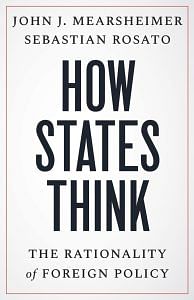 ‘How States Think: The Rationality of Foreign Policy’ by John J Mearsheimer and Sebastian Rosato
‘How States Think: The Rationality of Foreign Policy’ by John J Mearsheimer and Sebastian Rosato
Was Russian President Vladimir Putin’s invasion of Ukraine a rational move? Was the US’ decision to invade Iraq in 2003 non-rational? This book explains the rationality of foreign policy and argues why rationality may not always achieve desired outcomes. Breaking down several ‘non-rational’ decisions, from Germany’s move to start World War I to the US settling Cuban missile crisis, it gives convincing reasons why the State was a rational actor: Janki Dave, News Editor.
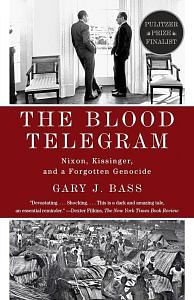
‘The Blood Telegram: Nixon, Kissinger, and a Forgotten Genocide’ by Gary J Bass
Rwanda, Cambodia, and Holocaust are some of the horrors of genocide in modern history. Bass shows why the Bangladesh war should be added to the list. He lays bare the horror that unfolded under the watch of US President Richard Nixon and state secretary Henry Kissinger. Conversations between the two men reveal their hatred for India: What they really need is a mass famine, Nixon says at one point. I regret not reading this book earlier: Anjali Thomas, Deputy Ground Reports Editor.
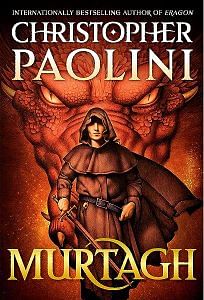 ‘Murtagh’ by Christopher Paolini
‘Murtagh’ by Christopher Paolini
I turn to fantasy fiction when I want to relax. While the first four in Paolini’s Inheritance Cycle series were largely feel-good books aimed at young adults, Murtagh is darker, more grim, and frankly, more relatable. A dragon rider, an epic journey, and a reign of terror grip you from the start. I thoroughly enjoyed journeying through a familiar world through the eyes of its anti-hero and was happy to see that Paolini himself had matured as a writer and thinker: TCA Sharad Raghavan, Deputy Editor.
 ‘No Bad Parts’ by Richard C Schwartz
‘No Bad Parts’ by Richard C Schwartz
This book will make you talk to yourself, and you will realise the many parts that live inside you. You may have categorised them as good, bad, and ugly. But Schwartz urges you to first accept all of them and then build a relationship with them because “there are no bad parts” — it’s, what he calls an Internal Family System, something you should try understanding and accepting: Anurag Chaubey, Senior Assistant Editor, Opinion and Ground Reports.
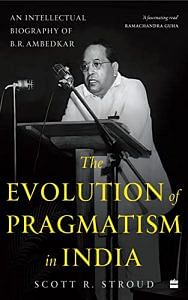 ‘The Evolution of Pragmatism in India’ by Scott R Stroud
‘The Evolution of Pragmatism in India’ by Scott R Stroud
Babasaheb’s life is an inspiration to many, but who inspired his work? Prof Stroud delved into Ambedkar’s time at Columbia University—and discovered an unmistakable influence of American philosopher John Dewey and the idea of ‘pragmatism’. The concept not only shaped Ambedkar’s “life, works, and thought” but also his version of Buddhism. This book is a rare biography of the intellectual giant of India whose pragmatism reimagined the fight against oppression: Prashant, Senior Assistant Editor, Opinion and Ground Reports.

‘Another Sort of Freedom’ by Gurcharan Das
Das’ book defies the monotony of typical memoirs. Honest, witty, and emotional, it gives us a rare peek into the author’s meaningful and tumultuous life. From a carefree early childhood in Lyallpur, a difficult and often racially coloured teenage life in the US to a surprising sales stint with Vicks Vaporub in India, Das recalls his life’s best and worst moments with unmatched simplicity and candour. “This is Gurcharan Das as you have never seen him before” — and he will have you hooked before you know it: Zoya Bhatti, Copy Editor.
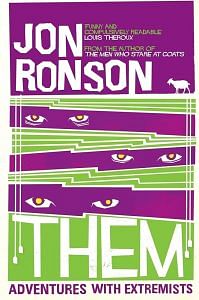 ‘Them: Adventures with Extremists’ by Jon Ronson
‘Them: Adventures with Extremists’ by Jon Ronson
After spending time with a British Muslim radical, an American white nationalist, David Icke, and a garden variety of extremists, Ronson finds that ‘they’ all believe something controls the world—the Bilderberg Group. Written with patient empathy and humour, he not only gives you a peek behind the curtain but invites you into the actual living rooms of anti-Semites, Islamophobes, and racists. The contents remain eerily relevant in today’s extremist landscape: Theres Sudeep, Copy Editor.
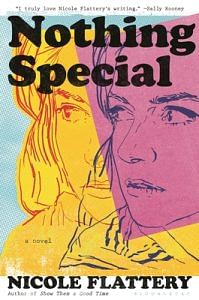
‘Nothing Special’ by Nicole Flattery
Flatterly’s prose is whip-smart. It reads psychotic at times, but what it says has a deep truth to it. The book is about an aimless teenage girl who gets a typist’s job at Andy Warhol’s factory. It consumes her and then fills her with disgust. This is her coming-of-age story — but nothing really happens: Ratan Priya, Copy Editor.
 ‘Bells of Shangri-La’ by Parimal Bhattacharya
‘Bells of Shangri-La’ by Parimal Bhattacharya
Read the first page of this book — and you’ll doubt if it’s non-fiction. Bhattacharya has lyrically woven Tibet’s sleepy history and the horrors of British enslavement and espionage that came with the quest to unlock the mysteries of ‘Shangri La’, the mystical land that always refused to let its secrets out — and yet whose history has always been bloody, battered, and broken: Humra Laeeq, Copy Editor.



